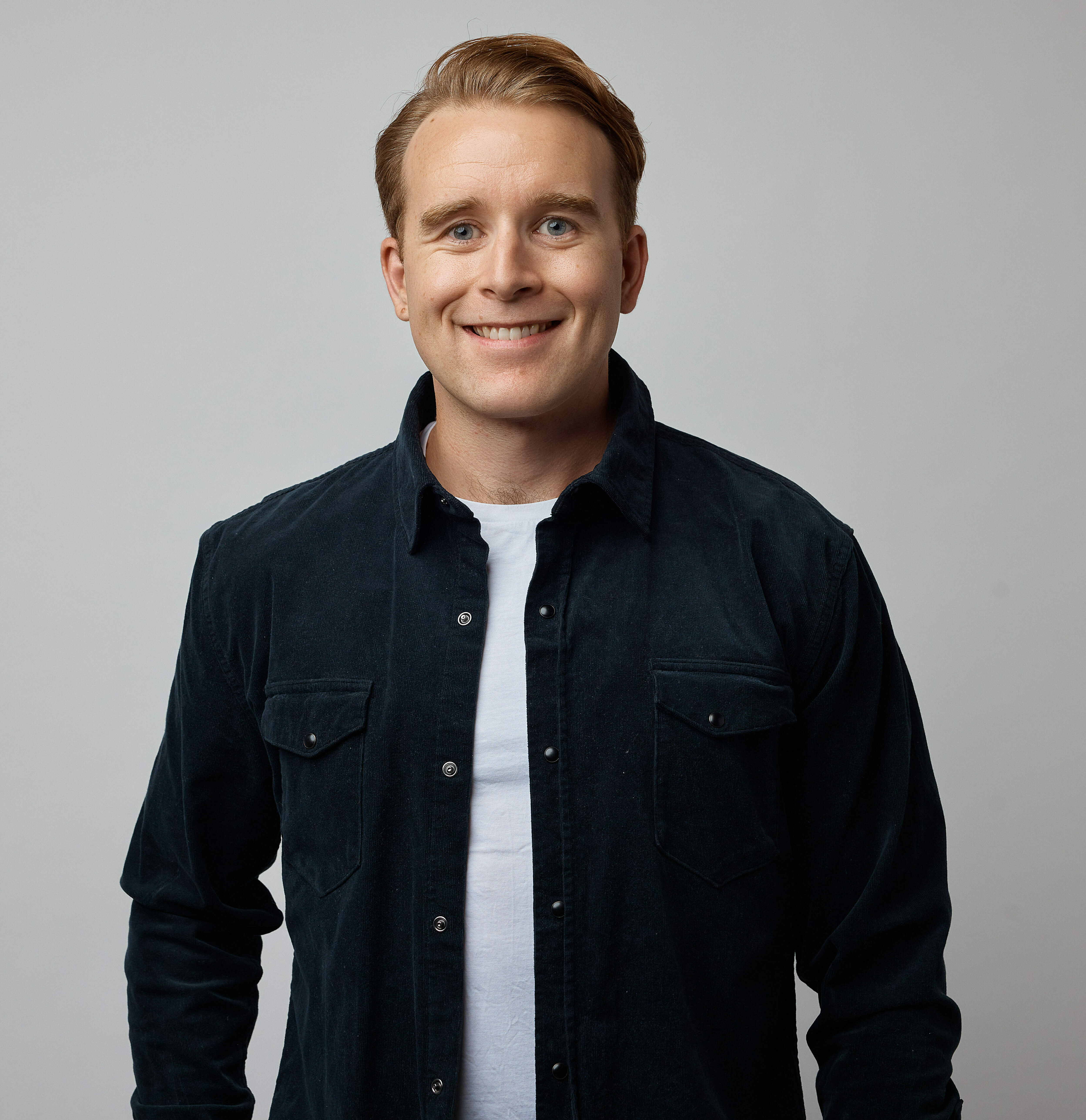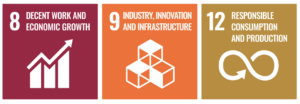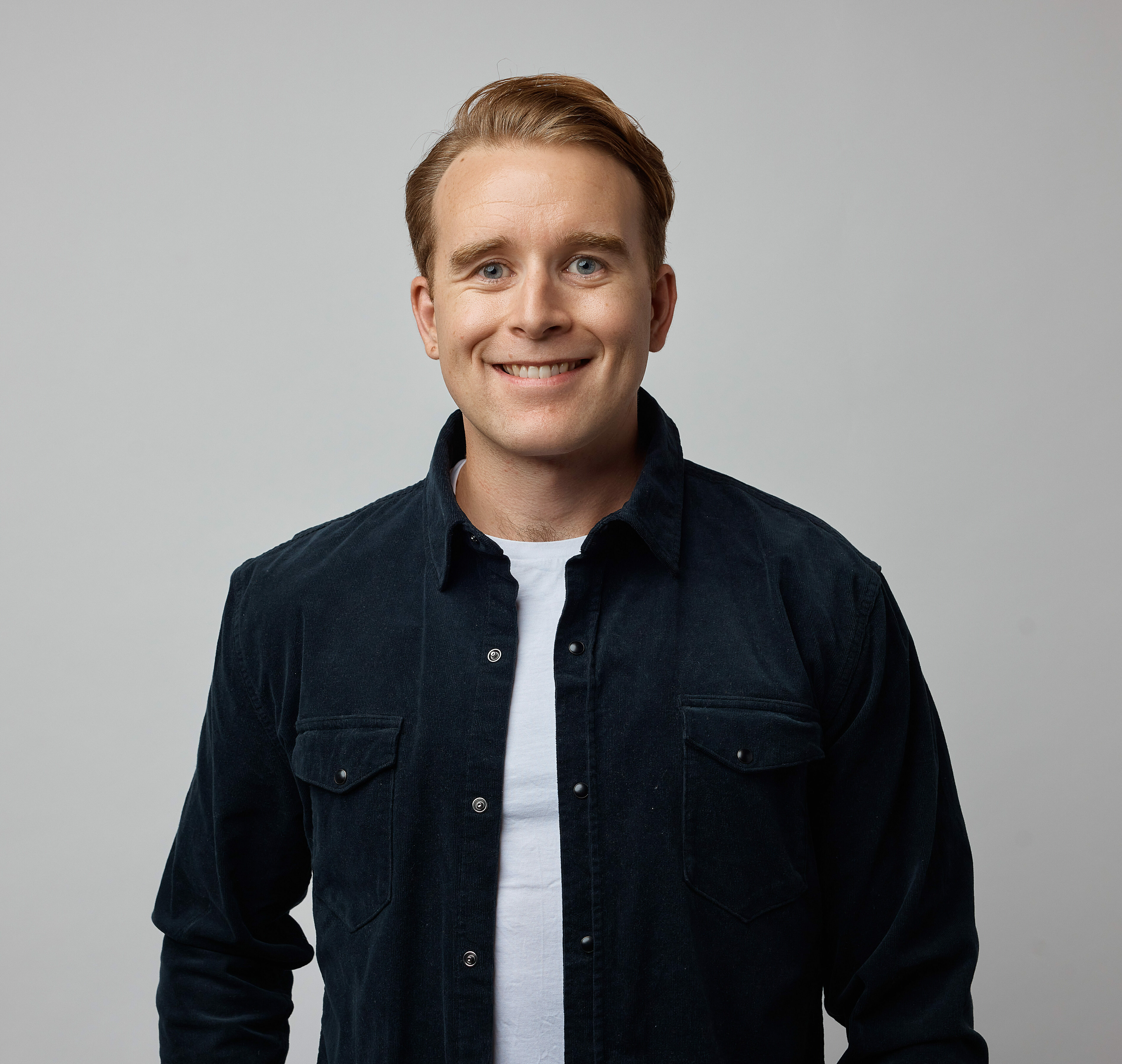
University of Galway graduate and business strategy leader, Sam Murphy-Kerry is the North America Director at the Sustainability Studio at Accenture Song, the tech-powered creative group of Accenture. Accenture Song’s Sustainability Studio is dedicated to making sustainability relevant and actionable for everyone. As the business world increasingly faces pressing calls for sustainable action, creativity and strategy have never been more important. Here, Sam explains to Cois Coiribe why sustainability and growth, by definition, “ought to go hand in hand.”
CC: Take us through a day as a Director at Accenture with the remit of embedding sustainability into Accenture’s client work?
Sam Murphy-Kerry: My role is within Accenture Song’s Sustainability Studio. In my role, I am responsible for business and offering development and client relationship management, meaning I am constantly working with colleagues, clients and partners across a wide range of challenges, opportunities and geographies.
This year, I’ve mostly been focusing on energy and transportation decarbonisation. I have been working closely with a global energy player looking to understand consumer motivations and behaviours around electric vehicle (EV) purchasing and charging.
I led a team of designers, engineers and commercial strategists in identifying systemic and behavioural barriers to the adoption of electric vehicles. Based on these insights, we defined new products and services to help our client scale EV adoption and grow their own market share of EU charging volume, all powered by renewable energy.
Outside of large-scale programs such as this, I am constantly working with colleagues, experts and partners to guide our clients in embedding sustainability into their core business.
On many of my projects, I am constantly pitching, prototyping and customer testing – all critical skills I developed during my time at University of Galway.
CC: Many business leaders see the importance of sustainability. Is sustainability compatible with growth? How does Accenture support businesses to bridge that gap?
SMK: To be sustainable is to provide for the needs of the present without compromising the needs of the future. By definition, sustainability and growth ought to go hand in hand. Unfortunately, the path to connecting these two perceived tension points is not always clear. Those of us who work in sustainability every day are constantly challenged to demonstrate creativity and strategic understanding of our client’s business models in order to help leaders do well while doing good.
The Accenture – UN Global Compact Private Sector SDG Stocktake shows that we are off track in our pursuit of the 20230 goals, but executives still believe that tackling climate change is a top priority and is critical to business resilience. With only 15% of the SDGs on track for 2030, never has the world needed the blend of creativity and strategy more than today.”
At Accenture, we support clients in bridging this gap across energy transition, regulation and data, supply chain, procurement, responsible leadership and design. My team is the designated sustainable growth engine, tasked with influencing culture, pioneering new sustainable business models and activating people. Last year, we completed a study on people’s relationship with sustainability titled “Our Human Moment,” and our findings were eye-opening. Our core finding was: in order to make the world more sustainable, we must focus on making sustainability more human, not on making humans more sustainable.
We have also had the good fortune to partner with the United Nations Global Compact for many years, working hand in hand with them to equip companies with the insights, assets and tools they need to meet the Global Goals. In September of this year, the UN Global Compact launched Forward Faster, a global initiative to help get the world back on track to meet the 2030 goals. Accenture Song’s Sustainability Studio was the creative partner supporting this initiative.
Through this initiative and others, we are putting our money where our mouth is, committing and delivering on aggressive net zero targets for our own operations and hiring sustainability experts across the globe to advise our clients in setting and delivering ambitious sustainability goals.
CC: The digital transformation of education continues to accelerate at rapid pace. We see universities using digital technologies to connect and improve student experiences. How can companies such as Accenture assist universities in overcoming the challenges of navigating both virtual and on-campus student experiences?
SMK: Honestly, I don’t think any organisation – education, government, or corporation – has comprehensively solved this challenge. From my perspective, I am convinced that the on-campus experience is impossible to replicate no matter how effective or immersive our technology becomes. Maybe I am old-school in that viewpoint, but at the most basic human level, I believe we thrive off chance encounters, the diversity of perspectives, and the sheer energy of campus life. The best way I think companies like Accenture can assist is by sharing what we have learned from our own 700,000+ person organisation and helping you implement solutions that have worked for us. Some learnings we have are: firstly, for straightforward skill building (like say, coding) or knowledge dissemination (like facts and figures about an industry), then in-person and virtual learning experiences get about the same results. Secondly, if you need to build interpersonal skills that benefit from face-to-face practice (like sales training), or if you have an objective to build community, or you just want a morale bump, face-to-face is better. What doesn’t really work are hybrid courses, where you have a “main classroom” with most people in attendance, and others virtually dialling in. The virtual people always seem to have a less-than experience, so it is typically better to organise two separate sessions.
CC: How did your experience as a student at University of Galway help you along in your career path, and can you recall your most memorable moment?
SMK: Looking back, it’s clear to me that I’ve always been a little bit unorthodox, balancing the security of the proven path with some more eclectic tendencies!
My course, Commerce and French, was relatively unique in the Irish system, combining a traditional B Comm at University of Galway with the added value of a foreign language, offering graduates international experience. Our French Language Lecturer, Ruadhán Cooke, played a vital role in shaping the young adult I would become. He had a generosity of spirit with our small class whilst channelling his competitive rowing spirit to serve as a pacesetter for all of us. I had a small but close group of friends who all harboured ambitious career goals but equally wanted to make the most of our time together. I will always cherish the fond memories I have spending time with friends at the college bar and café, and the Kingfisher Fitness Club.
My classes in accounting, economics, strategy and product management provided me with the knowledge and skills I needed to succeed in the corporate world. It’s difficult to choose a single memorable moment, however, three in particular stand out. Firstly, for any graduate of University of Galway living in Corrib Village in first year, emerging from the parochial environments of our hometowns to a place where you can live, study and play with so many kindred spirits is a special phase. The friends I made there are still some of my closest today. Secondly, at age 16, I set my sights on University of Galway’s Commerce with French course. In my third year, I had the privilege of studying as an Erasmus student in Strasbourg, where I made friends from all corners of the globe, vastly improved my French language skills and gained invaluable exposure to the workings of the European Parliament in Brussels and Strasbourg. Lastly, in final year, I was lucky enough to be guided by a wonderful lecturer, Michael Campion, who introduced me to the world of corporate innovation in a practical class called Innovation, Creativity and Enterprise. Three friends and I won a yearlong competition where we developed a new product called Clever Clubs that sought to forge stronger bonds between parents and young children through the form of a smart teddy bear. This course taught me the art of pitching, prototyping and customer testing – all core parts of my work today.
CC: What advice would you offer current students at University of Galway?
SMK: Keep the faith and keep putting one foot in front of the other. In the current economic environment, it can be tempting to revert to the tried and tested. Choose a path after university that gives you the options you need to make your mark in the world.
I’m a big believer in the power of creativity, perseverance and humility, whatever your field. Whether you’re a biomedical engineer developing devices to improve health outcomes, a civil engineer developing sustainable new materials, a commerce student scaling sustainable business models, a lawyer shaping business-friendly environmental policy or a data scientist unlocking new insights to influence human behaviour for the better – each of you will play a pivotal role in safeguarding our planet for generations to come.
The older I get, the more I realise that small, consistent acts carried out through collaboration are the most powerful drivers of change. Translate this sentiment into your own context and you’ll be just fine. And don’t sweat the small stuff! Embrace the circuitous nature of a modern career.
SDGs discussed in this article:

Profiles

Based in the US as the North America Director of Accenture Song’s Sustainability Studio, Sam Murphy-Kerry is an innovative sustainability and business strategy leader with a proven track record in driving sustainable models and client innovation. Skilled in team management, cross-functional collaboration, and industry-first projects, Sam is passionate about leveraging his expertise to contribute to organisations seeking to advance sustainability and strategic growth initiatives across various sectors.